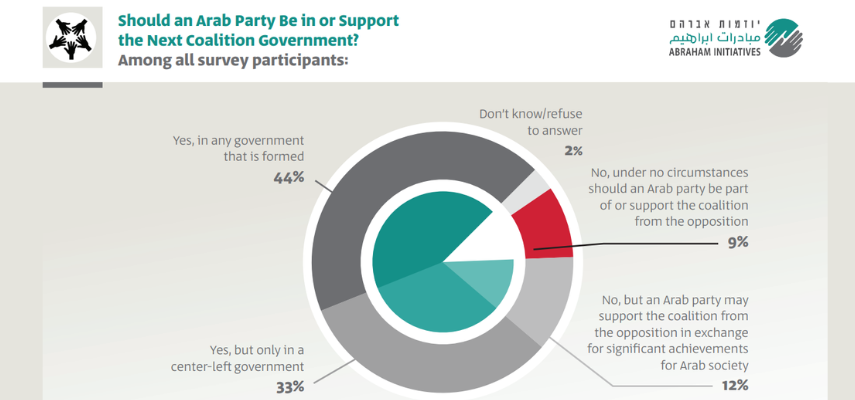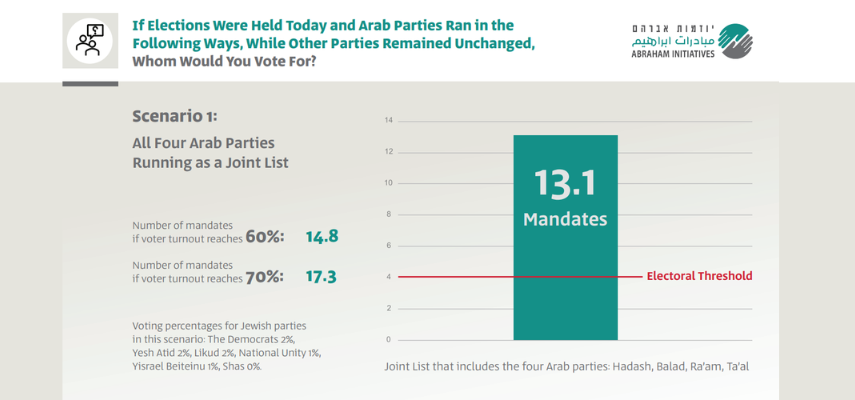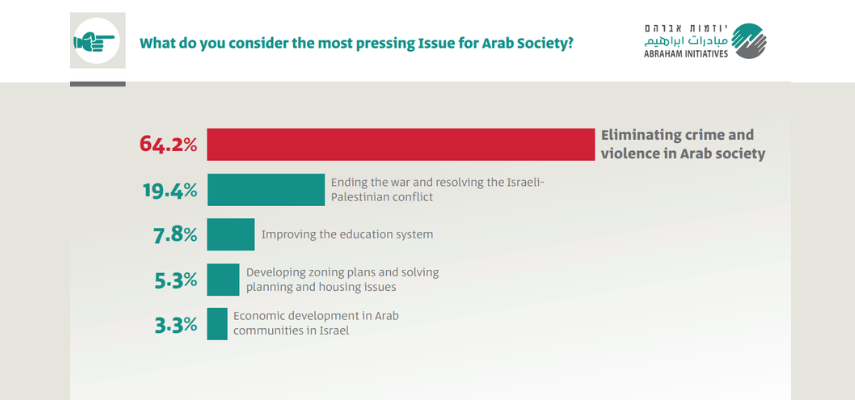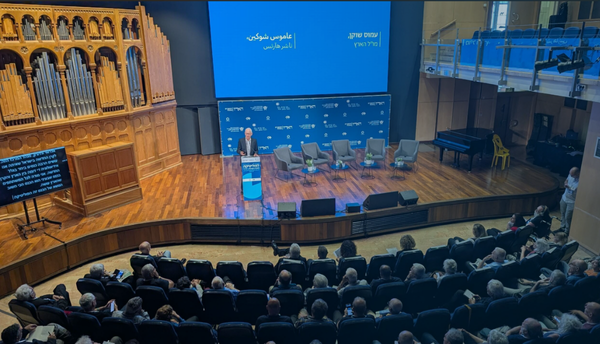“If Elections Were Held Now”
A new survey “If Elections Were Held Now” commissioned by the Abraham Initiatives and conducted by the Statnet Institute offers insights into prospects of shared Jewish-Arab political leadership and growing desire for political participation among Arab citizens of Israel ahead of the next national elections, scheduled for October 2026.
The survey, conducted between May 12–16, 2024, is based on a representative sample of 750 Arab citizens, taking into account religion, past voting patterns, and geographic distribution.
Key Insights About the Voters
- Expected voter turnout is 53% similar to previous national elections, with women anticipated to have a lower participation rate at 37%. Muslim voter turnout expected to be lower than that of Christians and Druze.
- Arab Citizens Signal Readiness for Political Partnership
- An overwhelming majority (89%) of the Arab public supports forming a Joint List that includes all four Arab parties. According to the Abraham Initiatives, this sends a clear signal: Arab citizens are eager to take part in shaping Israel’s civic and political future as equal participants.
- 44% of Arab voters are in favor of participation in any government, while 33% support participation in a center-left government.

- Another 12% would support such the next government from the outside in exchange for concrete achievements for Arab communities.
Political Partnerships Could Drive Voter Turnout
The survey found that the shape of political alliances significantly affects voter turnout. When each Arab party runs separately, most do not cross the electoral threshold. But a unified list is projected to win up to 13 seats. If turnout rises to 60% or 70%, the list could gain 15 or even 17 seats.

Even partial coordination, such as two joint lists, could yield 12–16 seats, depending on turnout levels. These numbers highlight the potential impact of cooperation among Arab parties and renewed voter engagement.
Why Arab Citizens Plan to Vote or Abstain
The survey also asked respondents about their reasons for voting—or choosing to abstain. Among those planning to vote, participants cited a range of motivations tied to improving quality of life and advancing political influence:
- Improving personal safety and public security for Arab citizens.
- Bringing political change—including a desire to replace the current coalition led by Netanyahu and Ben Gvir.
- Increasing the influence of Arab parties in shaping policies that directly impact Arab society.
- Securing state budgets and promoting economic development in Arab communities.
Among those not planning to vote, the findings reflect a range of personal and collective concerns:
- 30% feel that voting has not led to meaningful or visible results.
- 20% express a general lack of trust in the political system.
- 18% are discouraged by ongoing divisions among Arab political parties.
- 17% cite feelings of exclusion or unequal treatment within broader society.
- 15% report limited trust in current Arab political leadership.
Shift Toward Civil Priorities and Shared Interests Among Leaders
Recent meetings in March among leaders of the United Arab List, the Arab Movement for Change, and Balad – where they also discussed the new survey findings – suggest that despite ideological differences, there is consensus on key civil and national priorities—including fighting organized crime, promoting economic development, and seeking a long-term political resolution to the conflict. Arab leaders are aligning more closely with the practical concerns of their constituents—issues emphasized as key in the survey such as public safety, education, infrastructure, and employment.

How Can We Help?
Do you need support integrating these resources and issues into your philanthropic, communal, or Israel education work? Reach out for consultations, connections to experts, program support, training, or to plan your next event or mission. If you’ve used our resources, tell us about your experience!

